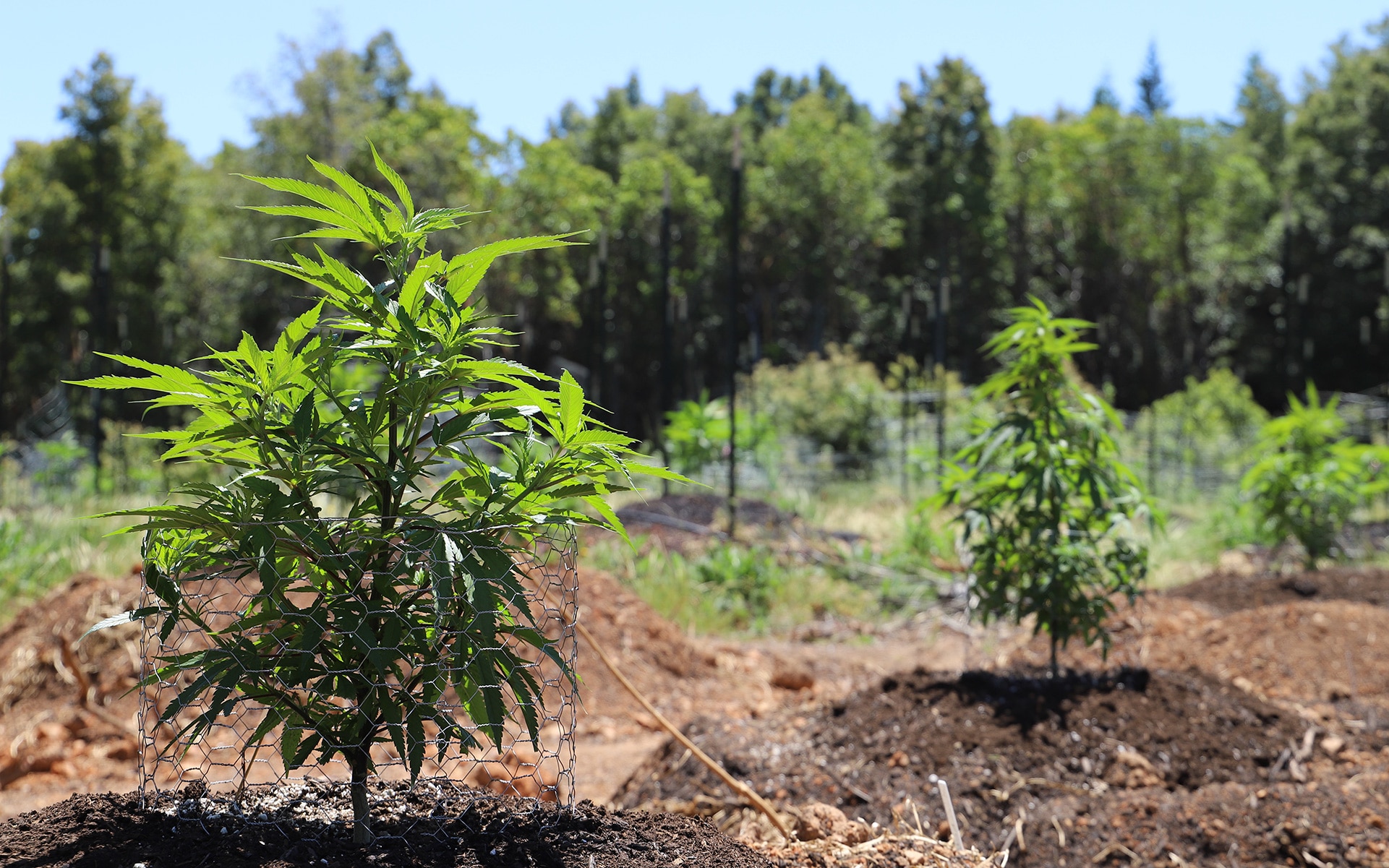When it comes to cannabis, there’s no such thing as the “best” way to grow. There are many factors that play a role in which growing method you prefer, and consumers will often choose a particular product or strain(s) based on their own preference or desired experience.
If you’re thinking of cultivating cannabis outdoors, there are several things you should be aware of and consider before making a final decision and securing a piece of land. Here is our list of top points to consider before pursuing an outdoor cultivation licence.
- CHOOSE AN IDEAL OUTDOOR GROW SITE
Look around for areas where plants already grow well. Find a spot that is protected from the elements, in an area that is easy to water, and has good drainage. Consider privacy and security – you may want to conceal your grow from neighbors, the public, and potential thieves. Tall fences and large shrubs or trees are your best bet, unless you live in a secluded area.
- CONSIDER THE CLIMATE IN YOUR AREA
The exact site location should be considered before selecting the variety to be grown outdoors. Understanding the amount of sunlight throughout the year is crucial to causing plants to “flip” from the vegetative to flowering stage, when they start to produce buds.
Depending on the variety, outdoor growing will require 75 to 90 frost-free days for a short season. Many of the more desirable genetics, however, require a longer grow period before harvesting.
Heavy rains and high winds can cause physical damage to plants and reduce yields, and excessive moisture can lead to mold and powdery mildew, especially during the flowering stage.
- NEIGHBOURING GROWS
Find out who your neighbours are on all sides of your proposed site. The activities they conduct can directly impact your outdoor grow (e.g. pesticide drift). There is also a risk of cross-contamination of neighboring grows, should any male plant pollen (from either cannabis or hemp) travel through the air.
- SOIL COMPOSITION
Getting your soil tested can be very helpful. This will tell you how to amend or ‘adjust’ your soil, and what types and amounts of fertilizer you should use. It will also tell you if there are residual pesticides or heavy metals present in the soil, as they may cause contamination or damage. Cannabis plants thrive in soil rich with organic matter, and they need good drainage. If you decide to plant directly in the ground, you’ll need to understand your soil composition and amend it accordingly.
- CHOOSE YOUR GENETICS
The main drawback to growing from seeds is that there’s no guarantee of what you’ll end up with. If your seeds don’t come feminized, you could end up with both males and females, in which case you’ll need to sex them out to get rid of the males. Even when you do have all female plants, each will be a different phenotype of the same strain. To get the best version of that strain, you’ll need to select the best phenotype, which can be a lengthy process. Many new growers start with feminized seeds.
- CONSIDER YOUR PROCEDURES
Will you be planting directly in the ground, or in large immobile containers?
How will your cannabis be provided with the right amount of water and nutrients?
Irrigation procedures – any water used must be potable drinking water quality. If the source of water is not municipal water, you will need to prove that it meets potable water standards.
When and how will you harvest your cannabis? The entire process should be planned carefully from start (seeds/clones) to finish (bulk packaged product/finished packaged products).
- PEST CONTROL/MANAGEMENT
Pests associated with cannabis are different for outdoor grows in comparison to indoor grows. Examine your cannabis plants a few times a week with an eye out for pests. An infestation is far easier to deal with if caught early. Only use pest control products or pesticides that are approved for use on cannabis.
Be aware of your neighbours and what pesticides they use on their crops (if applicable). If possible, try to schedule your harvest before they use pesticides to avoid contamination.
There you have it! Our top points to consider before pursuing an outdoor cultivation licence. Contact us today for a free consultation, and let us help you get started on the path to obtaining a cultivation licence and running a successful cannabis business!
How we can help you
At Cannabis License Experts, we provide you with the guidance to plan your cannabis business, acquire funding, navigate the legal requirements, and acquire the appropriate licence for your operations. As the Canadian cannabis industry develops, more and more licensed producers will be needed to meet the demands of consumers.
Cannabis License Experts offers support from day one of starting your cannabis business, including strategic planning, floor plan preparation, site audits, SOPs, Preventive Control Plans (PCPs) and more.
Our Edibles Compliance division can provide you with a solid plan for your edibles business to help get your products on store shelves.


